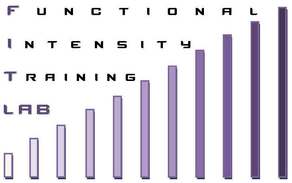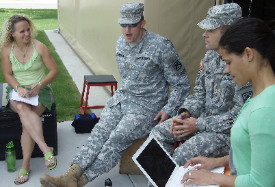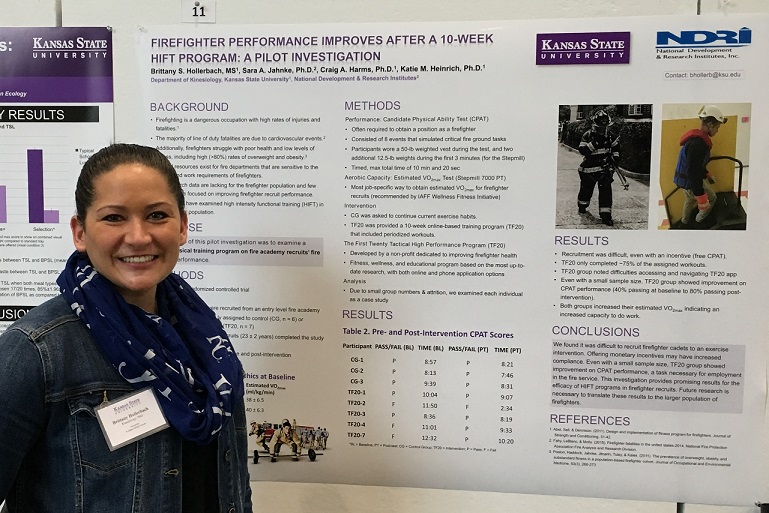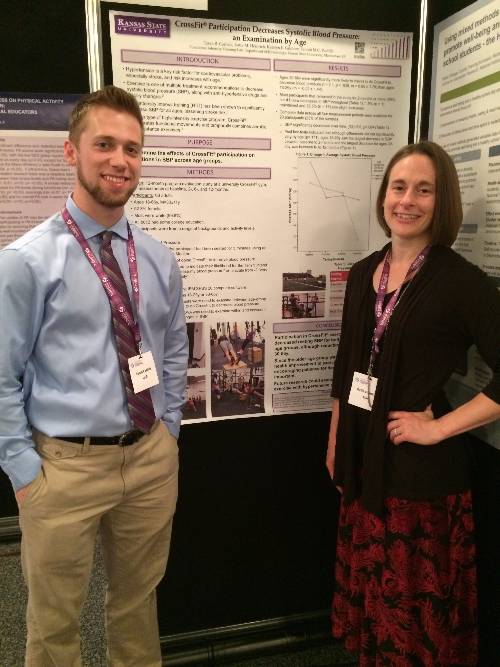Functional Intensity Training Laboratory
Director: Katie M. Heinrich, Ph.D.
 Research conducted in the Functional Intensity Training laboratory is focused on the effects of high-intensity functional training (HIFT) on fitness, health and psychosocial outcomes delivered in a group-based context.
Research conducted in the Functional Intensity Training laboratory is focused on the effects of high-intensity functional training (HIFT) on fitness, health and psychosocial outcomes delivered in a group-based context.
FIT Lab researchers investigate these factors for different populations including tactical athletes, cancer survivors, youth, overweight/obese adults, and older adults, among others. Some research in the FIT Lab is conducted to investigate relationships between policies, the built environment, and physical activity, as well as other types of exercise testing and prescription.

The FIT Lab also promotes education and service by providing opportunities for students, faculty, staff, and community members to participate in exercise training through CrossFit.
- The FIT Lab encompasses the L.I.F.E. Program and K-State CrossFit and is located in Natatorium, Room 4.
- FIT Lab Research Gate Page
Research:
Research Areas
- Exercise interventions and health and fitness outcomes
- Athlete fitness training and testing
- Factors predicting exercise initiation, intentions, and adherence
 Current Research Projects
Current Research Projects
- CrossFit Social Network Analysis and Sense of Community
- Program Evaluation System for K-State CrossFit
- Army Training at High Intensity Study (R01DK0995; ATHIS website)
- Individualized Training Prescription using Heart Rate Variability on the Physiological and Psychological Outcomes of CrossFit
- Differences in physical activity behaviors, facilitators, and barriers between university women from rural, micropolitan and metropolitan areas
- Simulated military task performance: physical fitness predictors and the effects of acute caffeine supplementation
- Differences in exercise behaviors by diabetes status: a survey of exercise types, intensities, and influences
- Effects of a Brief Lifestyle Intervention for Office Workers
Previous Research Projects
HIFT and Exercise Testing & Training
 An Examination of Caffeine's Effects during CrossFit Exercise (manuscript)
An Examination of Caffeine's Effects during CrossFit Exercise (manuscript)- An Examination of the Health and Wellness of Recruits and Women in the Fire Service (dissertation, manuscript, manuscript)
- An Epidemiological Examination of Reproductive Health in Female Law Enforcement Officers (dissertation, manuscript)
- A Comparison of Muscular Strength, Power, and Endurance among College Fitness Classes (see study updates here)
- Survey of Deployment Experience in Combat Zones (abstract 1, abstract 2, dissertation)
- The First 20 Exercise Training Program and Fire Academy Recruits' Fitness and Health (thesis, manuscript)
- High-Intensity Functional Training to Improve Balance and Daily Function Among Older Adults: Functional Fitness Program (presentation, poster, manuscript)
- Identification of Intensity Levels During Long and Short Duration High-Intensity Functional Training (undergraduate research)
- Prenatal Exercise Guidelines: A Selective Review (manuscript)
- Exercise Training to Improve Survival and Quality of Life Among Cancer Survivors (Johnson Cancer Research Center; (poster 1, poster 2, poster 3, manuscript)
- Investigation of Social, Behavioral, and Physical Factors Related to High-Intensity Functional Training through CrossFit (poster 1, poster 2, poster 3, poster 4, presentation, manuscript)
- A Qualitative Study of Key Social and Behavioral Factors Associated with CrossFit Participation (poster 1, poster 2, manuscript)
- The Influence of a CrossFit Exercise Intervention on Glucose Control in Overweight and Obese Individuals (thesis, manuscript, manuscript)
- Mission Essential Fitness (manuscript)
- Affective Responses to Various Exercise Training Modalities (manuscript)
- Fitness Gains from a Summer Youth Conditioning Camp (poster)
Policy and Built Environment
- Open Streets Manhattan Survey
- The Impacts of Sit-to-Stand Desks in a Self-Contained Classroom for Students with Emotional Disturbances (undergraduate research)
- The Campus Effect: Built Environment and Active Transportation at Kansas State University (student thesis)
- Marketing Walking to Women and their Families (abstract, manuscript)
- Involvement of Local Health Departments in Built Environment Decision-Making (manuscript)
- Public Support for Active Transportation Policies (abstract)
- Common Community Measures for Obesity Prevention in Rural Built Environments (presentation, manuscript)
- Survey of Kansas Policy-Maker's Attitudes towards Issues and Problems in Kansas (manuscript)
- Sunflower Trails Program Evaluation (manuscript)
Education:
- Teach evidence-based fitness using a core strength and conditioning program where needs of participants vary by degree and not kind with the goal of providing broad, general, and inclusive fitness.
- Teach real life functional movements (e.g., squat, deadlift) in a group setting while providing individual feedback.
- Educate kinesiology, and other interested individuals on CrossFit methods through exposure to the program.
Public Health:

- To make functional fitness available to all regardless of ability level, pre-existing conditions, and financial status; to address rising rates of obesity through physical activity.
- Disseminate and promote knowledge of CrossFit training methodology to professional and lay community leaders.
- To understand the key components and effects of physical activity/exercise-related policies.
FIT Lab Researchers
 Cassandra Beattie, MS PhD student |
 Aspen Streetman, MS PhD Student |
 Victor Andrews, MPH PhD student |
 Darryl Jewell, BS MS student |
Additional Researchers: Brooke Crawford (B.S. student), Aidan Lewis (B.S. student), Elizabeth Rogers (B.S. student), Averie Brown (B.S. student)
